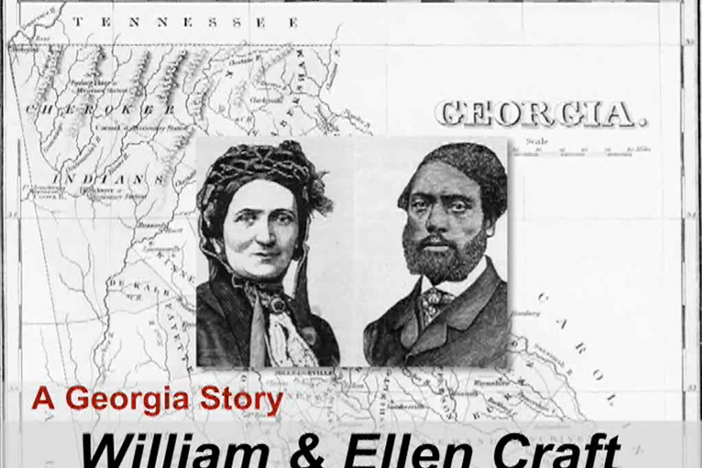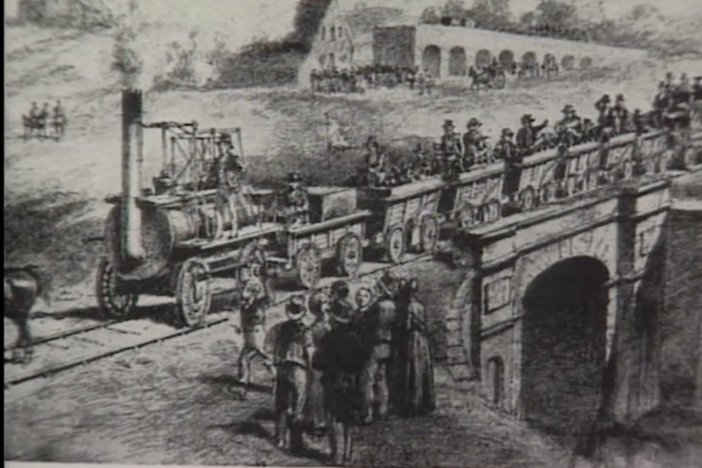From River to Rail: Georgia's Transportation History
In the early 1800s there were no reliable means of transportation. Waterways were the easiest routes and most of Georgia’s larger cities grew up along rivers. Michelle Gillespie at Agnes Scott College and Lesa Campbell of the Southeastern Railway Museum explain how it took the steam powered locomotive to bring about a transportation revolution in Georgia.
From River to Rail: Georgia's Transportation History
In the early 1800s there were no reliable means of transportation. Waterways were the easiest routes and most of Georgia’s larger cities grew up along rivers. Michelle Gillespie at Agnes Scott College and Lesa Campbell of the Southeastern Railway Museum explain how it took the steam powered locomotive to bring about a transportation revolution in Georgia.
Social Studies
Analyze the importance of water in Georgia's historical development and economic growth.
1. Explain the factors that contributed to the growth of the railroads.
2. Why did Georgia merchants decide that they needed a railroad from Augusta to Athens?
3. What effect did South Carolina's railroad from Charleston to Hamburg have on Georgia?
1. Locate your hometown on a state map. Ignoring the modern roads, pretend it is the mid-1800s and determine the different ways you could travel to the nearest big city. Trace the paths of nearby railroads and rivers to see if they would help reach the destination.
2. Write a story about the growth of Atlanta: from the survey made by the railroads to establish “Terminus” to the establishment of a large town called Atlanta. Using a map of Atlanta, locate the approximate site of the Zero Milepost placed there by the railroad surveyors in the early 1800s. (Hint: It is in another place today – not where it was originally.)
steam engine: an engine run by steam that is generated in a boiler; this pressurized steam is converted into mechanical energy and drives a piston in a closed cylinder
embed: fix (an object) firmly and deeply in a surrounding mass
elbow grease: an idiom for hard physical work, especially vigorous polishing or cleaning
efficient: achieving maximum productivity with minimum wasted effort or expense
1. Explain the factors that contributed to the growth of the railroads.
Georgians were moving inland. People wanted reliable transportation for themselves and their goods. Roads were muddy, dusty, and treacherous to travel. River travel was all right going downstream; however travel was difficult upstream.
2. Why did Georgia merchants decide that they needed a railroad from Augusta to Athens?
When they tried to move heavy cargo on the roads using horses and wagons, the weather and other factors made movement difficult. They decided they needed a railroad to be more efficient and to be able to compete with the states around them that already had the railroad.
3. What effect did South Carolina's railroad from Charleston to Hamburg have on Georgia?
With Hamburg being just across the Savannah River from Augusta, much of Georgia's cotton was transported to Charleston for export rather than to Savannah. As Savannah lost business, Georgia legislators began considering building railroads in Georgia as a result.





